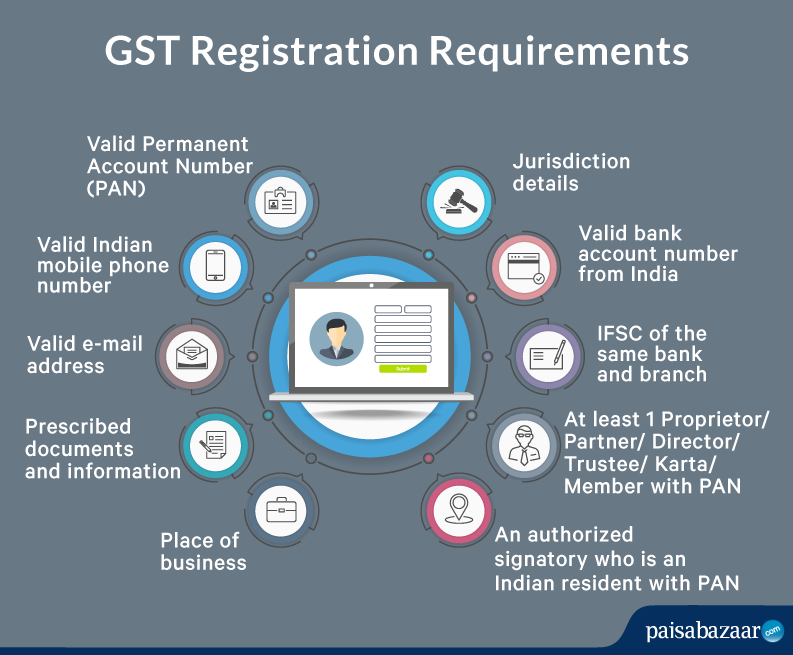Avoid Common Blunders in Singapore GST Registration for Your Business
Avoid Common Blunders in Singapore GST Registration for Your Business
Blog Article
The Ultimate Guide to Streamlining the GST Enrollment Process and Requirements for Small Business Owners
.jpg)
Recognizing GST Fundamentals
To realize the principles of the Goods and Services Tax (GST) system, local business owners must initially recognize its underlying ramifications and principles. GST is a value-added tax levied on a lot of products and services for domestic consumption. It intends to streamline the tax process by changing numerous indirect tax obligations enforced by the state and main governments. Under the GST regimen, companies are needed to collect and sign up tax obligation on part of the federal government, guaranteeing transparency and conformity.
One of the key principles of GST is input tax obligation credit score, which enables organizations to declare credit report for taxes paid on their purchases. This mechanism protects against the plunging impact of taxes and advertises efficiency in the tax system. Additionally, GST is a destination-based tax, meaning that the tax is levied at the factor of consumption instead of the point of beginning. This guarantees fair circulation of tax obligation revenue among states based on where the products or services are taken in. Recognizing these standard concepts is essential for small company owners to navigate the intricacies of the GST system and ensure conformity with the regulation.
Qualification Standards for Enrollment
Having established a foundational understanding of GST principles, local business owners need to currently fulfill particular eligibility requirements to wage the enrollment procedure. In India, entities participated in the supply of items or services with an annual aggregate turn over exceeding Rs. 40 lakhs (Rs. 10 lakhs for unique category states) are required to register for GST. In addition, certain companies such as those included in inter-state supply of products, informal taxable persons, and those required to pay tax under the reverse fee system have to register for GST irrespective of their turnover. Furthermore, companies that were registered under the previous tax program (BARREL, solution tax, and so on) are likewise mandated to register under GST. However, farming services that only provide create out of primary manufacturing are exempt from GST registration. It is crucial for business proprietors to carefully analyze their qualification based on these standards to make certain conformity with the legislation and avoid any fines for non-compliance.
Papers Required for GST Registration

Simplified Registration Process Actions
Following the collection and verification of the requisite papers, the enrollment procedure for GST can be navigated through a series of simplified actions made to facilitate effective compliance for little organization owners. Upon successful confirmation, an Application Recommendation Number (ARN) is released, indicating the conclusion of the GST enrollment process. By adhering to these simplified actions, tiny company owners can properly register for GST and make sure compliance with tax guidelines.
Tips for Ensuring Compliance
To preserve regulative adherence and functional integrity, persistent oversight and aggressive procedures are essential in making certain conformity with GST demands for small company proprietors. Small company proprietors need to stay updated with GST policies, filing target dates, and any kind of modifications in tax prices to avoid fines and preserve a great standing with tax authorities. One important tip for conformity is to keep thorough and precise records of all purchases, consisting of receipts, billings, and costs associated with GST. Regularly reconciling financial documents with GST returns can assist in determining and correcting any disparities without delay. Additionally, performing periodic inner audits or looking for expert aid can make sure that the company is following all GST regulations properly. It is also critical for small company owners to invest in GST-compliant audit software program that can improve the tax filing process and More Help minimize errors. Participating in GST understanding workshops or training programs can boost understanding and compliance with GST policies, inevitably profiting the service in the long run.
Final Thought
Finally, small company owners need to comprehend the fundamentals of GST, satisfy the eligibility criteria, collect essential records, and follow the simplified enrollment process steps to ensure conformity. By streamlining the GST registration procedure and needs, small company owners can avoid penalties and operate their organizations smoothly within the legal structure - Singapore GST Registration. It is crucial for small business proprietors to stay informed and certified with GST guidelines to maintain a successful business procedure
Tiny organization proprietors seeking GST registration have to guarantee they gather and submit the needed papers to complete the enrollment procedure successfully. The files required for GST registration usually include proof of business enrollment or unification, FRYING PAN (Permanent Account Number) card of the business identity, entity and address evidence of the go to this site promoters/partners/directors, photos, address evidence of the area of service, financial institution account declarations or terminated cheques, and permission kinds. Going to GST awareness workshops or training programs can boost understanding and compliance with GST laws, ultimately profiting the organization in the lengthy run.
By simplifying the GST registration procedure and requirements, tiny service owners can stay clear of charges and operate their businesses smoothly within the lawful framework. It is crucial for small service owners to remain informed and compliant with GST policies to maintain an effective company procedure.
Report this page